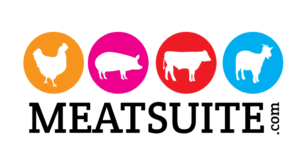Meat Supply Facts
go.ncsu.edu/readext?683879
en Español / em Português
El inglés es el idioma de control de esta página. En la medida en que haya algún conflicto entre la traducción al inglés y la traducción, el inglés prevalece.
Al hacer clic en el enlace de traducción se activa un servicio de traducción gratuito para convertir la página al español. Al igual que con cualquier traducción por Internet, la conversión no es sensible al contexto y puede que no traduzca el texto en su significado original. NC State Extension no garantiza la exactitud del texto traducido. Por favor, tenga en cuenta que algunas aplicaciones y/o servicios pueden no funcionar como se espera cuando se traducen.
Português
Inglês é o idioma de controle desta página. Na medida que haja algum conflito entre o texto original em Inglês e a tradução, o Inglês prevalece.
Ao clicar no link de tradução, um serviço gratuito de tradução será ativado para converter a página para o Português. Como em qualquer tradução pela internet, a conversão não é sensivel ao contexto e pode não ocorrer a tradução para o significado orginal. O serviço de Extensão da Carolina do Norte (NC State Extension) não garante a exatidão do texto traduzido. Por favor, observe que algumas funções ou serviços podem não funcionar como esperado após a tradução.
English
English is the controlling language of this page. To the extent there is any conflict between the English text and the translation, English controls.
Clicking on the translation link activates a free translation service to convert the page to Spanish. As with any Internet translation, the conversion is not context-sensitive and may not translate the text to its original meaning. NC State Extension does not guarantee the accuracy of the translated text. Please note that some applications and/or services may not function as expected when translated.
Collapse ▲
You have likely seen much on the news and floating around social media in regards to potential meat shortages due to COVID-19. But what is the real story? While there have certainly been disruptions in the supply chain getting meat to consumers, as well as grocery store shortages largely due to panic buying, the fact remains that there is no current shortage of meat in the US.
You can read more about what is happening with animal agriculture and our supply chain here: Is There a COVID-19 Meat Shortage
Meanwhile, farmers, local restaurants, and other retailers are working hard to get their products to consumers. In our area, many restaurants are repackaging their bulk orders to sell direct to households, local grocery stores and box stores are limiting purchase amounts to stabilize inventory, and farmers are selling direct to consumers.
NC Choices, an initiative of the Center for Environmental Farming Systems in collaboration with N.C. Cooperative Extension, promotes sustainable food systems through the advancement of the local, niche, and pasture-based meat supply chain in North Carolina. This effort has launched a program called “Meat Suite.” “Meat Suite” is another option for households to find locally raised meat and purchase in bulk. “Meat Suite” is in the early phases of listing farms in North Carolina, but consumers can now search for producers near them filtered by distance, product, and production practices. You can begin your search at MeatSuite. Farmers interested in listing their operations on “Meat Suite” can find instructions on the CEFS website.
To do your part, buy only what your family needs, be sure you are sharing factual information, and support agriculture at every opportunity (for example, our local strawberry farms have an excellent crop this year). Farmers are doing their best to continue supplying American families with fresh, safe, and quality products.
For more information regarding Extension programming in Currituck County, contact 252-232-2262 or Cameron_Lowe@ncsu.edu.




